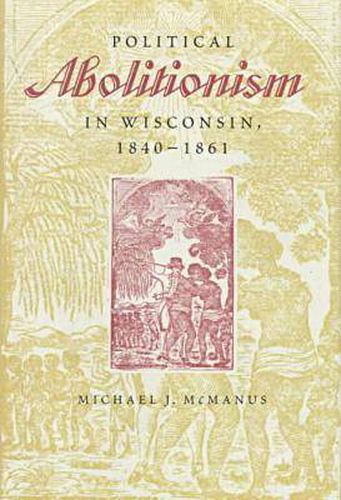Readings Newsletter
Become a Readings Member to make your shopping experience even easier.
Sign in or sign up for free!
You’re not far away from qualifying for FREE standard shipping within Australia
You’ve qualified for FREE standard shipping within Australia
The cart is loading…






Michael J. McManus’s study of political abolitionism in Wisconsin demonstrates the overriding importance of slavery-related issues in bringing on the political crises of the 1850s and the American Civil War. In the years prior to the war, the political struggle to free enslaved blacks and block the
peculiar institutions’s
spread into the western territories became intertwined with concerns over the future of republican institutions in America and the liberties of northern Whites. Among Wisconsin’s antislavery advocates, these issues produced growing disenchantment with the Union and the espousal of an extreme brand of state rights principles. It was only Lincoln’s steadfast adherence to the Union, and the war itself, that finally led them to adopt the concept of a perpetual Union. Between 1848 and 1861, Wisconsin also held three separate statewide referenda on the question of Black suffrage, thus offering an excellent opportunity to evaluate the correlation between party rhetoric and voting behavior and the degree to which each of the three antislavery political parties was committed to racial equality. McManus shows that Wisconsin was more radical on slavery and race-related issues than most other northern states, and that slavery, rather than local ethnocultural concerns, was of greatest significance to the state’s voters in the prewar years.
$9.00 standard shipping within Australia
FREE standard shipping within Australia for orders over $100.00
Express & International shipping calculated at checkout
Michael J. McManus’s study of political abolitionism in Wisconsin demonstrates the overriding importance of slavery-related issues in bringing on the political crises of the 1850s and the American Civil War. In the years prior to the war, the political struggle to free enslaved blacks and block the
peculiar institutions’s
spread into the western territories became intertwined with concerns over the future of republican institutions in America and the liberties of northern Whites. Among Wisconsin’s antislavery advocates, these issues produced growing disenchantment with the Union and the espousal of an extreme brand of state rights principles. It was only Lincoln’s steadfast adherence to the Union, and the war itself, that finally led them to adopt the concept of a perpetual Union. Between 1848 and 1861, Wisconsin also held three separate statewide referenda on the question of Black suffrage, thus offering an excellent opportunity to evaluate the correlation between party rhetoric and voting behavior and the degree to which each of the three antislavery political parties was committed to racial equality. McManus shows that Wisconsin was more radical on slavery and race-related issues than most other northern states, and that slavery, rather than local ethnocultural concerns, was of greatest significance to the state’s voters in the prewar years.